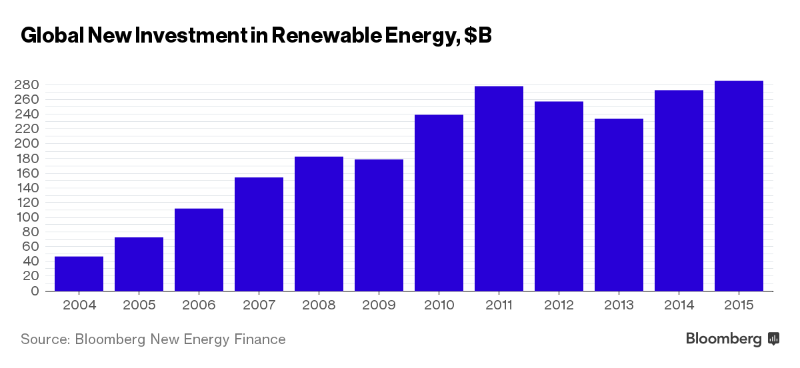Why Joe The Plumber Doesn't Want Renewable Energy
By Ugo Bardi
13 May, 2016
Cassandra's Legacy

Joe the plumber is a real person, but also an abstraction for the troubled American blue collar worker.
In a previous post, I argued that a global transition to 100% renewable energy would be very expensive, but possible and that it could also be fast enough to avoid exceeding the emission targets set by the COP21. This opinion triggered the usual flow of negative comments; mainly based on old canards or motivated reasoning. It also generated a discussion in a private forum where it was argued that we could have the transition if we could convince the general public that renewable energy is a good thing. I found myself in partial disagreement with this interpretation and I responded with a comment that I am reproducing here, with minimal edits.
All polls indicate that the "public" is largely favorable to renewable energy, apart from a minority of diehards who vent their frustrations by commenting the posts they don't like. So, we don't need a big effort to convince Joe the plumber that solar energy is a good idea.
Unfortunately, most likely Joe doesn't have enough money to install solar panels in his backyard. On the contrary, he is probably deep in the red, and if somebody comes up and tells him, "look, your high electricity bill is the result of the subsidies to renewable energy", he is going to believe that. He'll probably keep thinking that solar energy is a good idea, but he won't want to pay any money for it. (nor, in general, for anything related to "sustainability" or "fighting climate change").
In the end, it doesn't matter so much what Joe thinks or does. The point is how to convince that nebulous entity that we call "The Financial System" to funnel large amounts of money into renewable energy before it is too late And with large, I mean LARGE: If the big investors don't move, and fast, we are doomed.
The difficulty of the problem is evident if we consider what happened during the past decade, when the "financial system" poured gigantic amounts of money into the shale gas and oil industry. And we all know the story of the great bubble that's bursting out right now. But it is not just a question of money: it has been an incredible misuse of resources affecting a whole civilization; something that may well have doomed it for good, also in terms of the large quantity of greenhouse gases emitted and that didn't need to be emitted.
And I can't avoid thinking, "what if all that money and resources had been used for renewables, instead?" The world, today, would be completely different. So, who decided to push all that money in the wrong direction? The Gnomes of Zurich? The Trolls of Budapest? The Goblins of Southampton? The Orcs of Bratislava? Who?
I think this is the crux of the matter. As you can see in my post, investments in renewable energy seem to have plateaued after 2011.

And that's VERY worrisome. On the other hand, it is also true that we see a trend of increase during the past two years; that may indicate a return of interest of the financial system to renewables. And the impression is that, yes, there is a clear trend in that direction. So, maybe we have a chance, but we must move on.
Ugo Bardi teaches physical chemistry at the University of Florence, in Italy. He is interested in resource depletion, system dynamics modeling, climate science and renewable energy.

